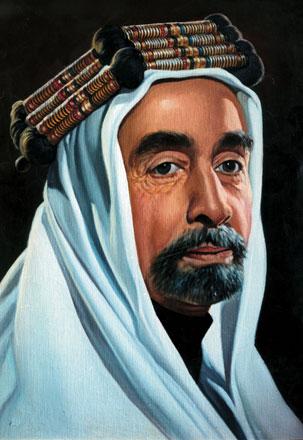You are here
Jordan’s survival
Jun 22,2014 - Last updated at Jun 22,2014
In 1921, Prince Abdullah Bin Al Hussein, established the Emirate of Transjordan. Twenty-five years later, he embarked on negotiations with the British that led to the announcement of the independence as the Hashemite Kingdom of Transjordan (renamed Jordan few years after).
Jordan has a long history filled with historic and trying moments for a small country: the 1967 war, the 1970 civil war, the Gulf war and, more recently, the turmoil of the Arab Spring. It has survived all.
What is the secret of survival as Jordan celebrates the 68th anniversary of independence?
The establishment of Jordan was a pragmatic choice made by King Abdullah I and a realisation of a big dream, that of the Arab Revolt. That moment did not need only pragmatism but also a vision. The founder of the country had both.
Jordan’s legacy defined the destiny of the country and it, consequently, would always be greater than the sum of its parts (area, resources, economy).
Both King Hussein and King Abdullah have taken this legacy to heart.
What are the components of this vision/legacy?
I would pick four: ambition, far-sightedness, moderation and tolerance.
We might find one or two elsewhere, but rarely in this combination. This is the secret.
These values resulted in several things: taking decisions that are ahead of their time, aspiring and working for the better, regardless of shortages and limitations, differences or conflicts not rooted ideologically or theologically, an inclusive policy embracing different faiths, ethnicities, and ideologies, and a strategic relation with the West.
No other Middle Eastern country has all these components combined, but Jordan.
Mohammad Aljayyousi,
Amman
Related Articles
AMMAN — Jordan on Wednesday marks the 65th anniversary of the death of His Majesty King Abdullah I (1882-1951), the founder of the Kingdom,
AMMAN — Jordan on Thursday marks the 66th anniversary of the death of His Majesty King Abdullah I (1882-1951), the founder of the Kingdom, w
AMMAN — Jordan on Monday marks the 69th anniversary of the death of His Majesty King Abdullah I (1882-1951), the founder of the Kingdom, who

















